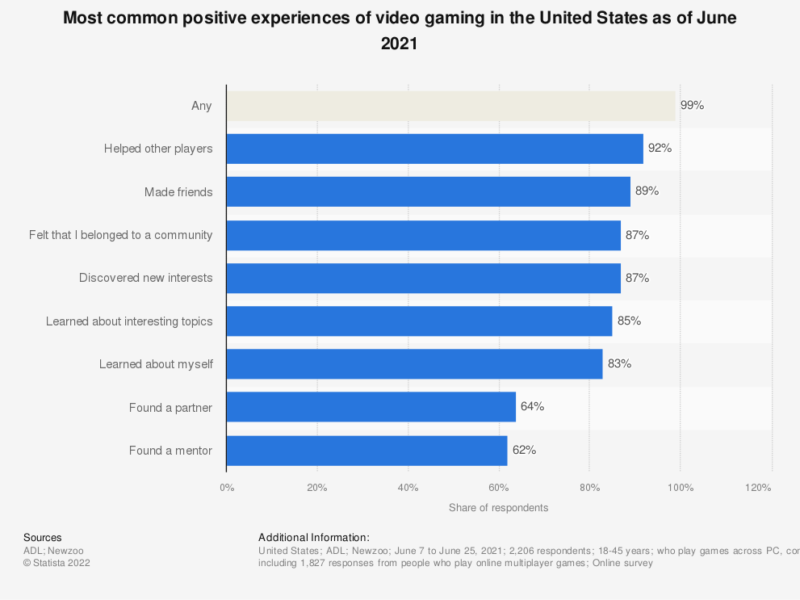Introduction
What are eSports?
eSports, also known as electronic sports, are a form of competitive gaming that involves professional players competing against each other in video games. These games can range from first-person shooters to multiplayer online battle arenas, and are often played in organized tournaments or leagues. The popularity of eSports has grown rapidly in recent years, with millions of viewers tuning in to watch live streams and events. In fact, the global eSports market is expected to reach $1.08 billion by 2021, making it one of the fastest-growing industries in the world.
History of eSports
The history of eSports can be traced back to the early 1970s, when the first video game tournament was held at Stanford University. However, it wasn’t until the 1990s that competitive gaming began to gain mainstream attention with the rise of arcade games like Street Fighter II and Mortal Kombat. As technology advanced and online gaming became more prevalent, eSports continued to grow in popularity, with the first professional gaming league, the Cyberathlete Professional League (CPL), being established in 1997. Since then, eSports has exploded in popularity, with millions of fans tuning in to watch tournaments and competitions featuring games like League of Legends, Dota 2, and Overwatch. Today, eSports is a multi-billion dollar industry, with professional players earning millions of dollars in prize money and sponsorship deals.
Growth of eSports
The growth of eSports has been nothing short of phenomenal. In just a few short years, the industry has gone from a niche hobby to a global phenomenon, with millions of fans tuning in to watch their favorite players compete in tournaments around the world. This growth has been driven by a number of factors, including the increasing popularity of video games, the rise of streaming platforms like Twitch, and the growing acceptance of eSports as a legitimate form of competition. As the industry continues to expand, it is likely that we will see even more growth in the years to come, with new games, new players, and new fans all contributing to the rise of eSports.
The Competitive Gaming Scene
Popular eSports Games
Popular eSports Games:
There are a variety of games that have gained immense popularity in the world of eSports. One of the most popular games is League of Legends, a multiplayer online battle arena game that has a massive following. Another popular game is Counter-Strike: Global Offensive, a first-person shooter game that has been around for over a decade and has a dedicated fanbase. Other popular games include Dota 2, Overwatch, Fortnite, and Hearthstone. Each of these games has its own unique gameplay and attracts a different type of audience, but they all share the common thread of being highly competitive and engaging for players and spectators alike.
Major eSports Tournaments
Major eSports tournaments have become a staple in the gaming industry, drawing in millions of viewers and offering large prize pools for the best players. Some of the most popular tournaments include the League of Legends World Championship, The International for Dota 2, and the Overwatch League Grand Finals. These events are often held in large arenas and stadiums, with fans traveling from all over the world to attend in person. The growth of these tournaments has also led to the development of professional teams and players, with many organizations investing in their own eSports teams to compete at the highest level. As the popularity of eSports continues to rise, it’s clear that major tournaments will continue to be a driving force in the industry.
Professional eSports Teams and Players
Professional eSports teams and players have become a major force in the gaming industry. These teams and players are highly skilled and dedicated to their craft, often spending countless hours practicing and perfecting their skills. Many of these players have become household names, with millions of fans around the world tuning in to watch them compete in tournaments and matches. These players are also highly sought after by sponsors and advertisers, with many earning substantial incomes from endorsements and partnerships. As the popularity of eSports continues to grow, it is likely that we will see even more talented players and teams emerge, further cementing the status of competitive gaming as a legitimate and respected sport.
The Business of eSports
Revenue Streams in eSports
Revenue streams in eSports have been growing rapidly in recent years. Sponsorship deals with major brands, advertising revenue from streaming platforms, and prize money from tournaments are some of the main sources of income for eSports organizations and players. In addition, merchandise sales, ticket sales for live events, and media rights deals are also becoming increasingly important. The global eSports market is expected to generate over $1 billion in revenue in 2020, and this number is only expected to grow in the coming years. As the industry continues to expand, new revenue streams are likely to emerge, making eSports an increasingly lucrative and attractive field for investors and players alike.
Sponsorship and Advertising
Sponsorship and advertising have played a significant role in the growth of eSports. As the industry continues to expand, more and more companies are looking to invest in this lucrative market. Major brands such as Coca-Cola, Intel, and Red Bull have all sponsored eSports events and teams, providing financial support and exposure to the industry. In addition, advertising revenue from streaming platforms such as Twitch and YouTube has also contributed to the growth of eSports. With the increasing popularity of competitive gaming, it is likely that sponsorship and advertising will continue to play a vital role in the industry’s success.
Investment in eSports
Investment in eSports has been steadily increasing in recent years, with major companies and investors recognizing the potential for growth in the industry. In 2018, the global eSports market was valued at $906 million and is projected to reach $1.79 billion by 2022. This growth has attracted investment from traditional sports teams, such as the Philadelphia 76ers and the Miami Heat, as well as tech giants like Tencent and Amazon. Additionally, venture capital firms have been pouring money into eSports startups, with over $4.5 billion invested in the industry since 2012. This influx of funding has allowed for the development of professional leagues, improved infrastructure, and increased prize pools, further solidifying eSports as a legitimate and lucrative industry.
The Future of eSports
eSports in the Olympics
The inclusion of eSports in the Olympics has been a topic of debate for several years now. While some argue that eSports should be recognized as a legitimate sport and included in the Olympics, others believe that it goes against the traditional values of the games. In 2018, the International Olympic Committee (IOC) stated that they were considering the inclusion of eSports in the 2024 Paris Olympics as a demonstration sport. However, the IOC has also emphasized that any game included in the Olympics must adhere to the values of the Olympic movement, including non-discrimination, respect for human dignity, and fair play. As the popularity of eSports continues to grow, it will be interesting to see how the debate around its inclusion in the Olympics evolves.
eSports in Education
eSports is not only a form of entertainment but also a potential career path for many students. As a result, many educational institutions have started to incorporate eSports into their curriculum. Some universities have even started offering scholarships for eSports players. This not only helps students pursue their passion but also provides them with opportunities to develop skills such as teamwork, communication, and strategic thinking. Additionally, eSports can also be used as a tool for teaching various subjects such as math, physics, and history, making it a valuable addition to the education system.
eSports and Virtual Reality
eSports and virtual reality (VR) are two rapidly growing industries that have the potential to revolutionize the way we experience gaming. With the rise of VR technology, many game developers are exploring the possibilities of creating immersive eSports experiences that allow players to fully immerse themselves in the game. This could lead to a new era of competitive gaming, where players are not just competing against each other, but also against the virtual environment itself. Additionally, VR technology could also provide a more engaging and exciting viewing experience for eSports fans, allowing them to feel like they are right in the middle of the action. As both industries continue to evolve and grow, it will be interesting to see how they intersect and what new opportunities they create for gamers and fans alike.
Conclusion
Summary of the Rise of eSports
In summary, the rise of eSports has been a remarkable phenomenon in recent years. From humble beginnings as a niche hobby, competitive gaming has grown into a global industry worth billions of dollars. The popularity of eSports has been driven by a combination of factors, including advances in technology, the growth of online gaming communities, and the increasing mainstream acceptance of video games as a legitimate form of entertainment. As more and more people become interested in watching and participating in eSports, it seems likely that this trend will continue to grow in the years to come.
Final Thoughts on the Future of eSports
In conclusion, the future of eSports looks incredibly bright. With the continued growth of the industry, we can expect to see more investment, more tournaments, and more professional players. As technology continues to advance, we may even see new games and new ways to experience competitive gaming. However, it’s important to remember that the success of eSports ultimately depends on the community. As long as fans continue to support their favorite games and players, the industry will continue to thrive. So whether you’re a casual gamer or a die-hard eSports fan, there’s never been a better time to get involved in this exciting and rapidly-evolving world.


